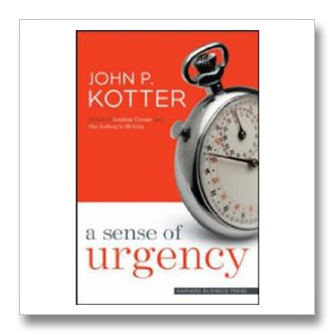The RSA hosted another good event, this time on British values, this week.
The background to this debate is Gordon Brown's desire to be clearer about the rights and responsibilities of British citizenship and what it means to be British (potentially to disguise his own Scottish nationality from English voters, although it could also be seen to be an extension of Tony Blair's cool Britannia). 'The Governance of Britain', published in July last year, proposed to "work with the public to develop a British statement of values". It is currently intended that these will then form part of a new 'bill of rights'.
I'm not going to dwell on what these values should or might be (I recommend an article in last year's Prospect magazine to readers who may be interested in this). But I do want to share some thoughts about the appropriateness of this quest and the current consultation process, which I think relate to the development of organisational values too.
The main concern at the RSA seemed to be the difficulty in setting values at a national level, and particularly for Britain, which since WW2 has shied away from the idea of having a self identity and lacks a formal constitution (it was even suggested that it would be 'unBritish' to have a set of British values).
It is also recognised that it will be difficult to define a set of values which are:
- Specific enough to have some meaning but still sufficiently inclusive to include the full, diverse population of the country .
- Based on our aspirations but still grounded in the way people act today (which will also be difficult given that MORI's recent research found that no more than half of British people agreed that we display behaviours aligned with equality, fairness and responsibility - and that only 18% said we exhibited the characteristics of tolerance and politeness)
- And that the values must remain fluid and enable change (to be like porous lime mortar rather than cement which will crack and let in water the first time it rains).
These are of course, similar issues to the ones organisations need to face when defining values, but even more difficult to deal with as there is no opportunity to align them with a centrally imposed direction.
But do we / organisations need values anyway?
I will admit that I am not generally a fan of values (I will of course support an organisation to develop them if that's what it believes it needs to do). And I think this wariness comes from two main experiences.
Firstly, I don't think I've ever changed my own values because of the values of an organisation I've worked for. I may have altered my behaviour, although even here, probably only very slightly. But to the extent that I have, this has been based upon my understanding of what I need to do to be effective, or to be perceived as being effective, and hasn't altered my own beliefs about what I think are important.
Secondly, in the most successful change experiences I've been involved in, we deliberately haven't used them.
Still, I'm aware of other experiences where they have been used successfully. I wrote about one such example in my book - the use of values to articulate what was being seen as important at Skandia in the UK (in this case: 'creativity', 'passion', 'commitment, 'courage' and 'contribution)- and which did seem to have changed people at a deeper level than simply their behaviour. One reason for this success seemed to be that the values were expressed as pictures rather than through words.
There are also some good examples of values based change in one of my favourite texts, YSC's Meaning Inc, which I reviewed last year. For example Sainsbury's values ('getting better every day', 'great service drives sales', 'individual responsibility - team delivery', 'keep it simple', 'respect for the individual' and 'treat every £ as your own') which were written up as a story.
YSC suggest that the use of generic sounding values statements are in decline and "businesses instead are developing values statements that articulate more precisely the behaviour they believe is core to the culture and will make for a successful working environment". They provide Siemens values statements as examples ('I am a good colleague', 'I am a team player - I feel responsible', 'I keep my promises - I only promise what I can keep').
I don't think YSC, and I certainly don't, mean that attitudinal change is unimportant. I just don't think written lists of deeply held beliefs and values is the way to get there. To the extent they are, the value comes from the process of development and communication (hence the successful use of pictures and stories in the examples above), rather than from the list itself. (So here at least, I think the fact that the UK's government has given control of the 'British values' consultation process to the people, is a very positive sign.)
But most successful examples of values don't use 'attitudinal values' (as in 'I value...'). Instead, they simply clarify what the particular organisation believes is important, and the behaviours it requires from its employees to support this prioritisation.
A good example is Ritz Carlton Hotels which issue all staff with a card on which one side states the corporate motto ('We are ladies and gentlemen serving ladies and gentlemen') and on the other lists 20 basic rules, which translate the credo into real behaviour ('Smile - we're on a stage', 'Escort guest rather than pointing our direction', etc).
So what we should be doing, rather than trying to draw out something about the organisation's (and therefore its' employees) identity, is to specify what the organisation holds to be important, and which can support its competitive advantage.
And I think what I'm saying here, is that organisation's need a clear idea of their own mojo, which can then be translated into employee behaviour.
That then leads us onto a discussion about British Mojo, which I think is a slightly different one to that currently undergoing consultation. Perhaps this is about the 'wit and ingenuity' that London Major Boris Johnson has predicted we will bring to the 2012 Olympics?
And the relevant behaviours are then about innovation, entrepreneurship, flexibility etc - attributes that I think are much more central to the success of our financial services driven economy than hopeful ideas about tolerance, fairness and equality.





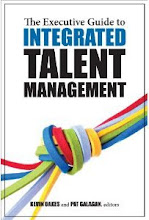


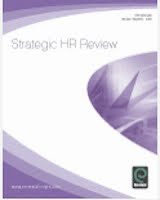
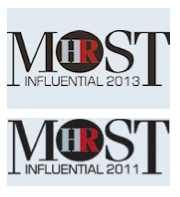










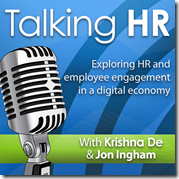






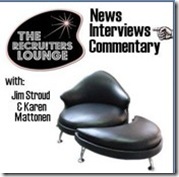
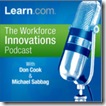
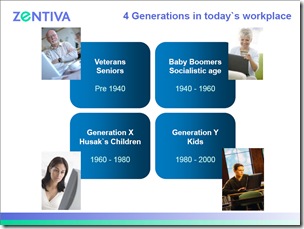











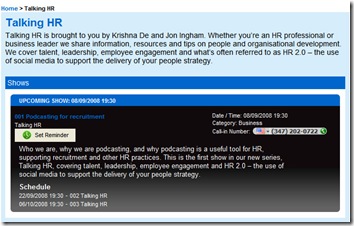
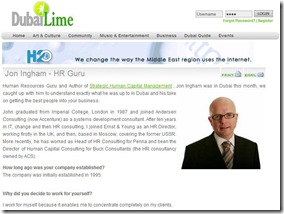


 David Creelman
David Creelman
